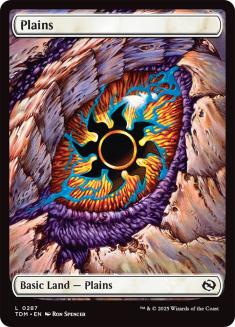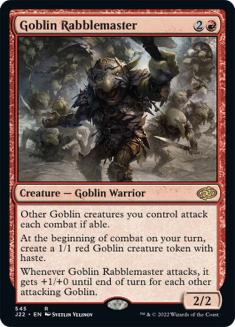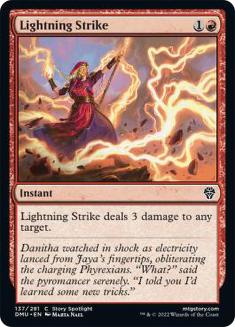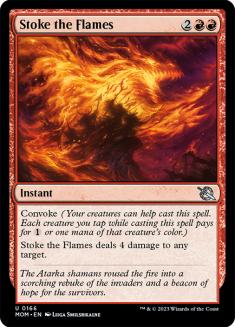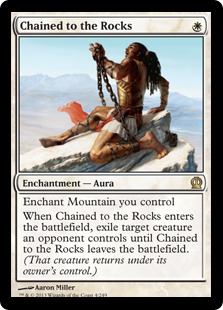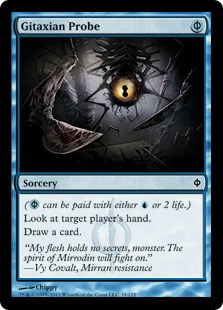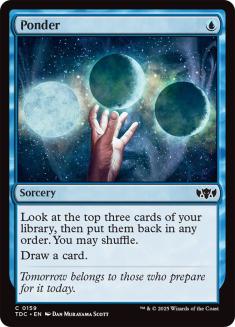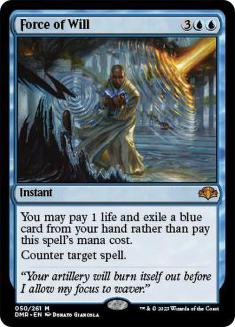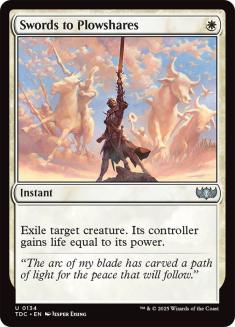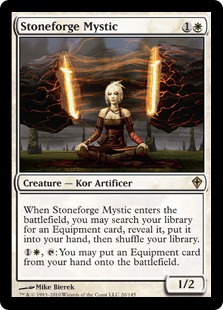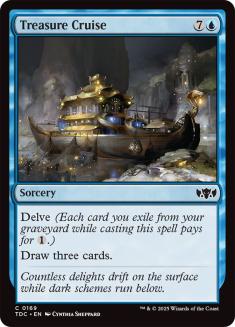Well, it’s that time of the year again! It’s the time where I take in a bunch of questions and answer them in a mailbag article. And by that time of the
year, I mean this is the first time I’ve done it, so hopefully it pans out.
A few weeks ago I asked people on Facebook and Twitter to hit me up with some questions so I could answer them in a Mailbag-style article, and here we are.
There were some gems, some trolls, and a lot of just very solid questions, so I’m excited to hop to it and see what the monkey I trained to type my
articles answers them with.
To start with, I have titled this piece “BBDbag.” One anonymous gentleman who sent me a question concluded his question with the hashtag “BBDbag”
referencing that it was for the BBD Mailbag. I didn’t notice anything out of the ordinary until he followed it up by quickly apologizing to me. It caused
me to reread what he had said, and I was able to figure out that when he typed “BBDbag,” it sounded like he was calling me a D-bag.
Which I am. Brian Braun-Douche. I thought it was hilarious, and I have now stolen his idea as my own, which is how I come up with 90% of my content anyway.
Just kidding. Only a bit.
Bob Huang
– “Do you have a bbd?”
Great question, Bob! The answer is yes, I do. I am a fan of my bbd. A lot of times when I am really sad, I come home and it is waiting there to cheer me
up. It’s just made of such solid material and just really great to sit around and play games on.
I don’t want to waste too much time on this question, but the long story here is that I do have a Bright Blue Desk and I love it dearly. I wouldn’t change
the color or consistency of the material for the world. My computer sits on it perfectly!
Jim Casale
– “What is the loosest hand you can remember keeping, and did it win?”
Weirdly enough, I spent a lot of time thinking about this question, and I couldn’t really come up with anything too crazy. I once kept seven lands against
Mono-Black Devotion with a bunch of Temples when I was playing Esper Control, and I won that game. That actually isn’t that bad of a hand though, since
they had Thoughtseizes and Duresses in against me, and I got to blank all of those cards and my topdecks were so powerful, especially with the ability to
scry every turn.
I actually win a reasonably high percentage of games where I keep these “super loose” hands, which actually leads me to believe that maybe they aren’t
actually that loose in the first place…
It’s segue time.
Keane Frady
– “Why do you keep looser hands than most players, Brian?”
I could write an entire article on this topic, and in fact, I have been planning on doing exactly that, once I managed to compile all my thoughts on the
matter into something less jumbled.
The long and short of it is that I don’t actually consider a lot of the hands I keep to be very loose. A lot of them are risky, but risky isn’t the same as
loose. For example, between GP New Jersey, and the SCG Players’ Championship, I kept five no-land hands in Legacy with a few Gitaxian Probes. A lot of
people immediately will ship those hands back without question and decry it as stupid to keep. However, I won all five of those games, most of them very
easily. Was I exceptionally lucky all five times, or is it okay to suggest that maybe ideas like “never keep a no-lander” are simply outdated concepts?
Once or twice might be luck. You’ll have a hard time convincing me that all five times were.
They are risky hands, for sure. If I don’t find a land in the first three draw steps, I will simply lose the game right away. The difference is that when I
do find a land, I get to just start churning through my deck extremely fast, and that kind of powerful engine with cantrips, cheap removal, and Treasure
Cruise was very hard to beat for most decks.
There is a risk to keeping certain hands, but there is also a risk to mulliganing. Sometimes your six is unplayable. Sometimes just being down a card is
enough of a drawback to lower your percentage in a matchup by a significant factor. People are quick to assess the risk of keeping a sketchy hand, but
rarely do people bring up the risk of starting at six cards.
Thought experiment: would you keep the following hand on the draw with R/W Aggro in Standard:
I argue that hand is not much different than this hand on the draw:
Something to think about.
I also mulligan a lot of hands as well. I would ship three lands, Bile Blight, Hero’s Downfall, Murderous Cut, and Wingmate Roc against U/B Control,
despite it having an even mix of lands and various spells. Three lands, four spells isn’t a snap keep just like “only one land” isn’t a snap mulligan.
Making silly rules about mulligans is just that: silly. Context is everything.
Jason Rotenberger
– “Do writers publish decklists that are purposely “off”?
This is a really good question, because from time to time I hear a bunch of conspiracy theories and rumblings that writers purposely try to mislead their
readers for their own personal gain.
To start with, there is actually extremely little personal gain to be had by doing that, and there is the risk of much personal loss. Let’s say I ship out
a decklist that I know is bad to try to improve my chances for a tournament. What are the odds I play someone at that event playing my decklist, and I am
able to win precisely because I gave them a faulty list? The answer is abysmally low.
Let’s say there are 2,000 people at a GP, and I had an article come out two days before the tournament. I’d wager only a couple hundred of those players at
most actually read my most recent article. A far lower number than that actually would use a decklist from that article. The impact on my tournament
success is like a drop in the bucket.
However, if you’re a writer and you keep giving people decks and ideas that don’t work, you don’t stay a writer very long. Magic players are smart. They
can tell when you’re lying to them and when you don’t know what you’re talking about, and they respond by no longer clicking your articles or listening to
what you have to say. That reflects poorly on you as a writer and your chances of staying one.
One of the most satisfying things to me as a content producer is when people message me to say “I just won a tournament with your deck!” Not only is that
satisfying from a personal level, but it is also beneficial to me in a professional level, because that person is now going to be more interested in what I
have to say moving forward. I am actively trying to create that situation as often as I can, and giving people faulty decklists just doesn’t accomplish
that.
Before GP New Jersey, I put out multiple pieces of content with the deck that I won the tournament with, and it didn’t affect my tournament at all. A few
weeks later, I won a PTQ with Abzan Aggro right after writing an article about the deck. Information secrecy is pretty overrated, and I tend to have better
results when I write or post about a deck and get feedback from people rather than try to keep it secret.
I have a personal motto that I will never willingly mislead my audience, and while I can’t speak for everyone, I’ve never known another writer who has
purposely lied to their readers. We are often wrong, and sometimes it looks bad when we are, but I don’t know any writer who is purposely lying.
With that being said, I do often withhold information. For example, you don’t see me writing about the deck I’m about to play in a Pro Tour, because that
isn’t fair to myself or my team. That doesn’t mean I am going to lie about it though. I’m not going to hand you a purposely faulty decklist. Instead I will
simply just not write about the topic at all.
Alex Schwartz
– “Do you have a pre-draw step ritual when you desperately need to rip some hot fire?”
I usually roll up my sleeves, rub my hands together greedily and say something like “Come on deck!” I tried it once at the Pro Tour when I was dead on
board with a Jeskai Charm in hand and my opponent at 4 life. I had only Islands and Plains in play. I ran the ritual and I actually ripped the Mountain to
win. Still lost the match though. What a waste.
Shelby Schatz
– “For someone like myself getting into competitive Magic, how much would you dedicate into it?”
This is a nearly impossible question to answer in a vacuum, because it all depends on what you personally want to get out of it. My best suggestion is to
be clear to yourself what your goals are with Magic and then plan appropriately.
If your goal is to be on the Pro Tour, then you probably aren’t dedicating enough time to it. For a lot of people, being on the Pro Tour isn’t a realistic
goal at all because they simply can’t afford to dedicate the required time to make it. There is nothing wrong with that. In fact, having a balanced life
between Magic and other pursuits is probably a lot healthier than the lifestyle I live. The people at the top are rarely the balanced folk though. I’m not
at the top, but my journey to try to get there has involved dedicating a huge chunk of time toward it, far more than most people are able or willing to
dedicate.
If your goal is to play in a handful of tournaments a year, like local SCG Opens, and put up a reasonable finish in those events, then you can afford to
dedicate far less to Magic. A good barometer is “stop playing when you stop having fun.” If Magic ever feels like a job or you feel obligated to play when
you don’t want to, then there’s a good chance you’re dedicating more to it than you should.
Eric Dittman
– “What do you like the most, and hate the most, about the current state of new MTG card design?”
The thing I hate the most, by far, is that they are pushing Magic toward this kind of game where midrange is always the best strategy you can be playing.
By constantly pushing the power level on creatures costing between three and five mana, they push out a lot of other strategies from being viable. It’s
hard to play aggro and control alike when Siege Rhino just beats the crap out of you either way. Even combo decks often lack time to execute their combo
against midrange strategies, because those same midrange strategies can still just kill you on turn 5. Lion into Anafenza into Rhino. Dead.
I say this, even though I actually love midrange decks. My favorite creatures of recent years are things like Restoration Angel, Thragtusk, Obzedat, Ghost
Council, and Siege Rhino. I like these cards and enjoy the strategies, but it doesn’t seem healthy for Magic to really pigeonhole people into playing them
by just making them too powerful.
The thing I love the most is that they seem to really be making better sets as a whole. Limited environments in the past few years have been exceptional. I
think Innistrad, M15, and Khans of Tarkir are three of the best Draft formats ever, and they all came out recently. They have stopped printing nearly as
many unplayable cards, which actually promotes an increase in the number of viable strategies by giving more tools to work with. This applies to both
Constructed and Limited. Giving people more options breeds more creativity and better formats.
If you ask me again in a year I will probably say the thing I love the most is the new Standard rotation cycle. I think it is one of the best changes Magic
has seen in a very long time.
Trevor Swope
– “What is the best placed pun that you have trolled any of your SCG coworkers with?”
It’s pretty embarrassing that I can’t think of an answer to this question.
Josh McCarty
– “If you were not playing Magic for a living, what would you be doing?”
I went to college to study Computer Science. I hated it. I stuck with it far longer than I should have. I failed at it, and I dropped out of school without
a degree.
I can safely say I wouldn’t be doing that.
My two favorite college courses by far were Introduction to Mathematical Proofs and Modern Algebra (which is also just more proofs, basically). Nerrrrrrd
alert. I got good grades in all of my math classes and actually cared about attending class and doing the work, which is more than I can say for Computer
Science. My guess is that I would end up in something that would hopefully be both mathematical and practical. Perhaps statistics.
Another option for me is writing. I love writing. Currently, writing is a big part of my career, and I would not be disappointed at all if I ended up doing
something like that when this Magic thing eventually dries up. I would be happy writing for a TV show or movie, writing a book, coming up with ideas for
comedy sketches or webcomics, or even trying to come up with ideas for fun and interesting advertisements or marketing schemes. Basically, anything that is
creative and allows for humor would be something I’d love to be involved in.
James Tennant –
“How upset do you get when people call you “Brian Braun-Dween”?”
My last name has been pronounced Bladavich before, and my name is spelled wrong on my own credit card. I once had eight feature matches in the same day,
and my name was pronounced differently and also wrong all eight times. I’m way past the point of getting tilted over “Braun-Dween”. Little known fact:
Braun is actually pronounced Brown. My name is phonetically “Brown Doo In,” and 99% of people pronounce it incorrectly. I accept “Brawn Doo In” as being
close enough though. I consider it correct, even though it is wrong in a purely technical sense.
Zak Davis
– “How do you feel about MTG revealing Alesha being the first transgender character and would you welcome more characters like this in the lore?”
It seems like a purely positive move for me. It doesn’t hurt anybody, and it is important to give people a character they can relate to. There is no harm
in introducing more people like this in the lore, and I applaud Wizards for caring enough to do something like this.
Patrick Bohot
–
“How influential has Magic Online been in helping you hone and develop your skills? Do you prefer playtesting in person or online? And has that
preference changed since v4?”
It has been very helpful. I tested exclusively for both GP Louisville and GP New Jersey on Magic Online. I think Magic Online made me a better technical
player up to a certain point where it then actually started to make me a worse player by causing me to develop lazy habits to save time. It was great for
teaching me the rules of the game, how the stack works, and the phases of the turn, things that a very large chunk of players don’t know nearly as well as
they should.
I prefer dedicated playtesting in person because it is more useful than just randomly jamming games online, but Magic Online is often more convenient. You
can do it whenever, and it is easier to build a deck on Magic Online than it is to find or proxy cards in paper.
Magic Online can be a detriment though. The online metagame is often different than paper, and often results are skewed because of the differences in
playskill between online opponents and paper opponents. It is also easy to fall into bad habits online that can also carry over to paper.
I think V4 is better in most ways than V3. The exception is that the deckbuilding and trading interfaces are so much worse, because they are so slow and
hard to navigate effectively. Neither product is very good though.
Robert Sanders –
“When you compete at major tournaments, do you wear boxers or briefs?”
I had a long answer written up for this, but I decided instead to keep things brief.
Jayson Chandler –
“If you were done with Magic, what would you replace the void with? Another hobby? School? Another game? Women?”
I spend a lot of time thinking about things like this. One of my biggest regrets in dedicating a huge chunk of my life to Magic is that I’ve missed out on
a lot of opportunities for romantic relationships, starting a family, graduating college, pursuing personal hobbies, and just being a more well-rounded
person in general. It is very hard to maintain being successful in Magic while also trying to juggle a family, a career, or any intensive hobbies.
I have a list of things I would love to do with more time on my hands. I’d love to learn a language (German probably), learn an instrument (I used to play
Piano), write a book, design a game, go back to school, start a family, or even just have more time to do things like read, watch good shows and movies,
spend time in the gym, or just spend more time with friends and family.
As of late, I’ve started to value these things a lot more. It’s possible that my Magic results slip a little bit as a result, but that’s a sacrifice I’m
willing to make to be more balanced overall.
Tyler Cole
– “If you could only play one deck for the rest of your life, from any time and any format, what would it be and why?”
The answer is probably Caw-Blade. Stoneforge Mystic, Jace, the Mind Sculptor, and Batterskull are three of my favorite cards of all time. Even role players
like Into the Roil were huge pet cards of mine before they started seeing play in this deck. I played this deck in every single tournament I played in for
the duration of its tenure in Standard, and I never once grew bored of it. You don’t say that about many decks.
A close second, and maybe even more enjoyable than Caw-Blade for me is another Jace deck. U/W Tapout Control from Shards/Zendikar Standard. Jace, Elspeth,
Gideon, Baneslayer Angel, and a bunch of great big spells like Mind Spring and Martial Coup. That is Magic at its finest.
Brendan Reginbald
– “How important have your friends been to your personal success? Could you have done it alone?”
Extremely important. 2012 was the worst year of my life. 2013 was the best year of my life. I went through a pretty radical transformation, going from a
lonely, broke, depressed, and hopeless guy to someone with a stable job, financial stability, and a good core group of friends. I also physically
transformed, losing 100 pounds in nine months.
There is no way I could have done that alone. People like Todd Anderson, Gerry Thompson, and Brad Nelson were instrumental in me improving as a Magic
player as well as just being friends I could spend time with in a new city. Chris VanMeter gave me a travel and testing buddy that was willing to make
crazy trips to follow our dreams in Magic. Ali Aintrazi gave me the motivation and support to lose 100 pounds and was a good friend and roommate, as was
David McDarby after him. Reuben Bresler let me live on his couch for a few months while I had nowhere to live and almost no money.
StarCityGames gave me a good job and the chance to work hard and move up in the company. I really value the opportunities they gave me and can easily say
that I was extremely fortunate to end up in the right place for me. So many other people who I didn’t name were helpful in many ways, giving me rides,
helping me with various things, or even just being a friend when I needed one.
I am more proud of my personal transformation between 2012 and 2013 than anything I have ever accomplished in Magic. There is absolutely no way I could
have ever done it alone, and if there is one takeaway from it, it’s that the two best things you can do to find success is to put the necessary work into
it and surround yourself with good, supportive people.
Nick Hoppesch –
Are you still on your diet/healthy lifestyle? How did you manage it running around to Magic tournaments all the time?
I was off it for a while, and I gained back a lot of weight. In the past few months, I’ve been back on it, and I’ve lost twenty pounds again, and I’m
slowly crawling back toward being where I want to be. Traveling to Magic tournaments is the hardest part of staying on diet, and the struggle of keeping it
up on the road is why I fell off in the first place. The easiest way to deal with it is to bring a lot of your own food on trips and never stop for fast
food. Most real restaurants have at least one menu item that is diet friendly, even if it is just a salad. For me, I generally look for a grilled chicken
dish and substitute the default sides for veggies.
Daniel Winkle –
What was the main concept that finally sunk in that made you a better than average player?
There is no magic formula for Magic success. You can’t just find a golden ticket and be a better player. It takes improvement in a wide variety of areas.
With that being said, I think the single biggest thing that holds people back is having too high of an estimation of their own skill and too much pride to
admit shortcomings and seek to address them. It definitely was (and often still is) a big hurdle for me to overcome.
Steve Osso –
I noticed in most of your Versus Videos you possess an almost childlike giddiness when playing Magic in a semi-casual setting with friends… I also
noticed when you’re playing in a tournament setting, you become a no-nonsense, dare I say, somewhat cutthroat Magic-playing machine. Do you ever find
it difficult to switch that persona on before a tournament?
For what it’s worth, I actually don’t feel like my persona is different in the two settings. The only difference is how I portray myself. Underneath the
childlike giddiness I am plotting and scheming how to win the game. Underneath the cutthroat tournament persona, I still get really excited when I get to
do something cool. I’ve made plenty of jokes in very high pressure matches before, so that’s not really out of my range either. I play every match of Magic
with a desire to have fun and a desire to win. In a tournament, my desire to win is much higher than my desire to have fun, so the hardcore cutthroat side
shows through more, but the two aren’t mutually exclusive.
Andrew Brown
– What was the hardest mental moment you had to overcome before winning the GP?
The hardest moment was surprisingly enough, convincing myself that winning mattered. There are certain checkpoints that we are always striving to hit in
Magic. In a Grand Prix, these checkpoints are things like “Make Day 2,” “Cash the tournament,” “Go 13-2 and qualify for the Pro Tour,” and “Make Top 8.”
It’s very easy to fall into the pitfall of hitting a checkpoint and then just checking out of the rest of the tournament. If you go into a tournament and
you’re like “I just really hope I cash this tournament” and then you have a record that locks you for cashing the event, it becomes very easy to just not
care about the last two rounds anymore, and you can very easily end up losing as a result.
This happened to me at Grand Prix Minneapolis. I flew to the Grand Prix knowing that I had to top 8 the tournament to get four pro points to hit Silver and
qualify me for Pro Tour Atlanta the next weekend or the trip was a waste. When I won the last round of the event to lock up Top 8, I was so excited. It’s
possible that was the most excited I have ever been in a Magic tournament.
Jacob Van Lunen talked to me and was like “Hey, remember that you still have a top 8 to play. You can still earn even more pro points here that could
matter.” The problem is, I had already kind of checked out of the event, because I couldn’t contain my excitement at the three Pro Tours I had just
qualified for with that top 8. I made a number of mistakes against Shaun McLaren in the quarterfinals match and lost as a result. I ended the year two
points short of hitting Gold. The points did matter, and I threw it away.
In GP New Jersey, my goal in the tournament was to go 13-2 and qualify for the Pro Tour. Once I achieved that goal and locked up top 8, I went and sat down
by myself and reminded myself of the mistake I made in Minneapolis. I resolved that I wasn’t going to make that same mistake. I was hungry for that win,
and I wasn’t going to let it slip away.
Eric Hymel –
“Who is your favorite person in Roanoke?”
Brian Braun-Douche.
Matt Campbell –
“Does the pressure of knowing the world is looking at your 75 change any of the decisions you make when registering for a big event?”
It makes me want to register Squire more.
John King –
”
I’m sure you’ve had tons of people know who you are when they sit down to play you. How do you handle that? Is it annoying, or do you take it as a
compliment?”
It depends a lot on my mood and how my opponent addresses it. Sometimes I really enjoy it and it’s a compliment. Sometimes I wish nothing more than that I
could just play a Magic tournament without people knowing who I am. I’m very shy and introverted, so there are times where Magic events are extremely
overwhelming for me. I have skipped events before purely because I was too scared to handle interacting with people or because I just needed time to
recharge and knew I wasn’t in the mindset to handle talking to people I didn’t know. I know that might sound pretty silly, but it’s actually a real thing
for me.
On the flip side, the vast majority of people I have met and interacted with and played against in tournaments have been really awesome. I don’t want to
give people the wrong impression that they shouldn’t approach me or other players at Magic events. I’ve had a number of tournaments, such as GP Omaha,
where I was doing poorly in the event, but just being able to meet awesome and friendly people at the event was enough to make the experience a positive
for me.
Like many things, it has upsides and downsides, and it’s something I’m still getting used to. It’s never always annoying, or always a compliment. The truth
falls somewhere in between but usually on the positive side.
I hope you all enjoyed the mailbag piece. I want to thank everyone who submitted a question. I got far more questions than I anticipated, and I regret that
I wasn’t able to answer all of them, because there were really so many good ones. It was hard picking and choosing the ones I did respond to, and this
article ended up being a lot longer than it was supposed to. Let me know if you like this style of article and want me to do it again in the future (your
feedback sustains the BBDbag Marauder). Also, if you have any other questions or follow up inquiries, let me know and I will do my best to answer them.
Knibb High Football is okay!


